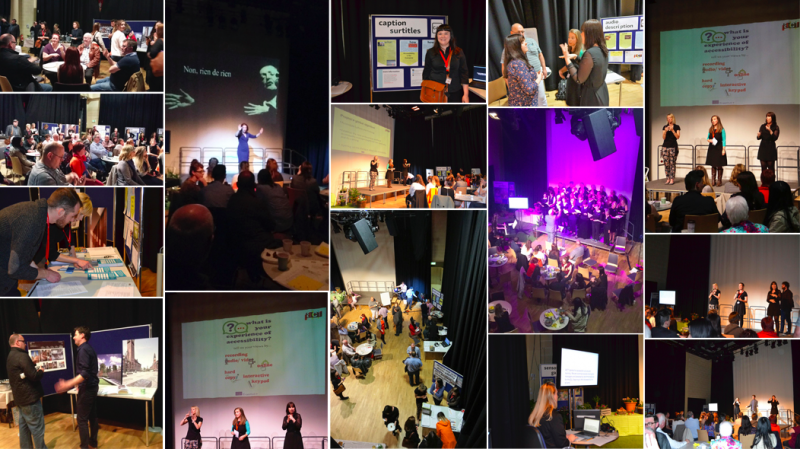The aim of the initial stage of the ACT project, Intellectual Output 1 (IO1): Accessibility Profiling, was to investigate the accessibility facilities and training currently available in cultural venues across Europe in order to inform further project phases. Building on the important work of various different organisations in providing and improving access to the arts at local level, IO1 opened up the discussion to an international level by bringing together various stakeholders involved in the process of making live events accessible for all, gathering feedback about arts accessibility across the partner countries from:
(1) cultural venues;
(2) members of the artistic team; and
(3) diverse audiences including people with varying physical, linguistic, sensory and cognitive abilities.
In order to facilitate discussion about ways to enhance access training and provisions, strategies for coordinating the various different people and new technologies involved, and raising awareness of these provisions so that wider audiences can enjoy an inclusive experience of the arts, the work of IO1 included the actions summarised below.
• The proposed work model for IO1 was set out at the first ACT project meeting on 27 November 2016.
• A provisional timeline was drafted, objectives and KPIs discussed, ethics approval was gained.
• The venues and users questionnaires were drafted and revised (QUB Venues and QUB Users), then translated into the other languages of the partner countries (UAntwerp Venues & UAntwerp Users, UVienna Venues & UVienna Users, UAB Venues & UAB Users).
• The activities of IO1 were disseminated via various media and platforms such as e-mail, phone, RNIB podcast, conferences (conference 01, conference 02, conference 03), social media project webpage; QUBelfast webpage; twitter @ActBelfast); UAntwerp webpage.
• Questionnaires were distributed to arts venues and users in each partner country using various methods such as e-mail, in person, online questionnaires including Qualtrix, SurveyMonkey (users and venues).
• Focus groups at UAB and Antwerp and events promoting the project were conducted.
• Feedback was collected from members of the artistic team by NTGent and Trànsit
• Report: A report summarising the work of IO1 was written including details of the KPIs.
• All data from across the partner countries was collected, organised, discussed, and analysed here.
For more info visit https://www.facebook.com/act.belfast.3
